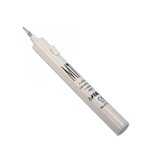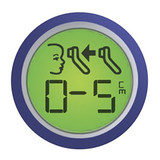Antenatal Care – Managing Pregnancy from Conception to Birth

Preventive pregnancy care and timely therapeutic care can help reduce the chances of pregnancy-related complications and ease to manage a pregnancy from conception. Doctors should include women and their partners in the antenatal, prenatal and postpartum support to make sure that the partners or single parents make informed decisions at each stage.
Pregnancy confirmation
The fastest and easiest way to confirm pregnancy is through the use of a urine test strip. Check mate professional pregnancy test strips are available in packs of 20 and provide a 99% accurate answer in a couple of minutes allowing medical professionals to quickly refer the expectant mother to a midwife for follow up appointments.
Routine Check-ups
During the first six months of a healthy pregnancy, it is ideal for expectant mothers to go for a check-up at least once a month. During the seventh and eighth month, check-ups become more frequent at every two weeks. During the ninth month, weekly check ups or as required is recommended. The routine check-ups include:
- Monitoring blood pressure, heart rate and the baby’s growth
- Measuring weight gain
- Routine tests such as anaemia, HIV, blood type, etc
- Nutrition guidelines
Choosing reliabale medical equipment is essential for medical professionals monitoring the progress of a pregnancy.
Digital floor scales that can weigh up to 200 kilograms are suitable to measure the weight of most pregnant women accurately. Digital blood pressure monitors are also a valuable tool for the early detection of Pre-eclampsia.
Calculate the due date regularly from the 7th month
The expected date of delivery and foetal gestational age needs to be calculated every week as soon as the seventh month of a pregnancy starts. The recommended technique to calculate the foetal gestational age is to assess it from the first ultrasound scan, rather than the date of the last menstrual period. An ultrasound scan between the 10th and 13th week is also recommended.
For regular assessment of foetal gestational age, the pregnancy due date calculator is recommended as a non-invasive method. The calculator does not require the medical practitioners to use any electronic devices, and it can be used without the expectant mother being present.

Monitor the movements with reliable instruments
Foetal movements and heartrate should be carefully monitored with reliable instruments. Using the correct equipment is also important to ensure accurate results, for example, in the case of a water birth a water birth doppler should be used.
Postpartum
In some cases, mothers may require some additional abdominal support after giving birth, this can be due to caesarean sections or muscle separation. Post-Partum
Support Belts are an excellent option that help women return to normal activies sooner.
If you're looking to purchase conception and maternity equipment for your surgery or hospital, please take a look through our range of low cost, professional medical supplies. Alternatively, if you're unable to find what you're looking for, please contact us on 0207 1014177.
All NHS funded GP surgeries and NHS Hospitals/Trusts qualify for an automatic 30-day credit account.
Recent Posts
-
Cauteries & Cryosurgery for minor procedures
Cauteries and cryosurgery work in a similar fashion, even though they are at opposite ends of the s …4th Jul 2019 -
Choosing the best digital thermometer
As any parent, or healthcare professional knows only too well, getting an accurate temperature read …6th Jun 2019 -
World Hand Hygiene Day
Any healthcare professional will be able to attest to the importance of good hand hygiene. 5 May 2 …1st May 2019




